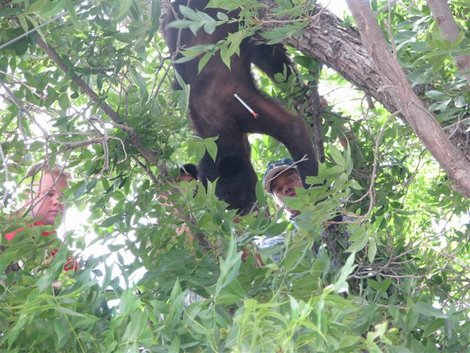Black bears are native to Texas, but many residents have never seen one in the wild. That is all changing this year. It’s also causing quite a stir, becoming a wildlife management challenge for the state wildlife department. The increased number of black bear sightings in Texas this year is part of a larger story in West Texas, where black bears have made a comeback in the last couple of decades.
“We used to have thousands of bears in the state of Texas,” said professor Louis Harveson of Sul Ross State University. “They (hunters) used to hunt in the Davis Mountains and harvest eight a day.” But unregulated hunting, among other factors, drove black bears to near extinction in Texas, where they are still a protected species. But in nature, wildlife populations tend to cycle.

In the late 1980s, a female bear made her way across the Rio Grande from Mexico, found a male and created the first mating pair in the state in decades. Since that time, the bear population in Texas has fluctuated, but has been rising slowly over the years. Now, Harveson said, that population might see a permanent jump, an unexpected benefit to the devastation of the drought.
“I think that whole drought-lack-of-food-availability cycle actually helps them recolonize new bear habitats,” Harveson said. “Because they’re able to put their nose in the air and smell water, and once they get to the river, they start exploring. That’s what we’re seeing in the Big Bend.” But just how many black bears are in Texas? And how many more are moving in?
Those are the real questions. “As many sightings as we’ve had, there have to be a whole lot more than what we’re aware of,” he said. Harveson said he has spotted five or six out in the field in the last two months alone. “Most of the bears that I’ve seen are in surprisingly good condition,” he said. “Somehow, they’re making a living. I’m not sure how.” It seems black bears are staking their own claim in Texas, and it looks like residents, as well as wildlife management officials, will have be dealing with sightings and potential black bear conflicts into the future.